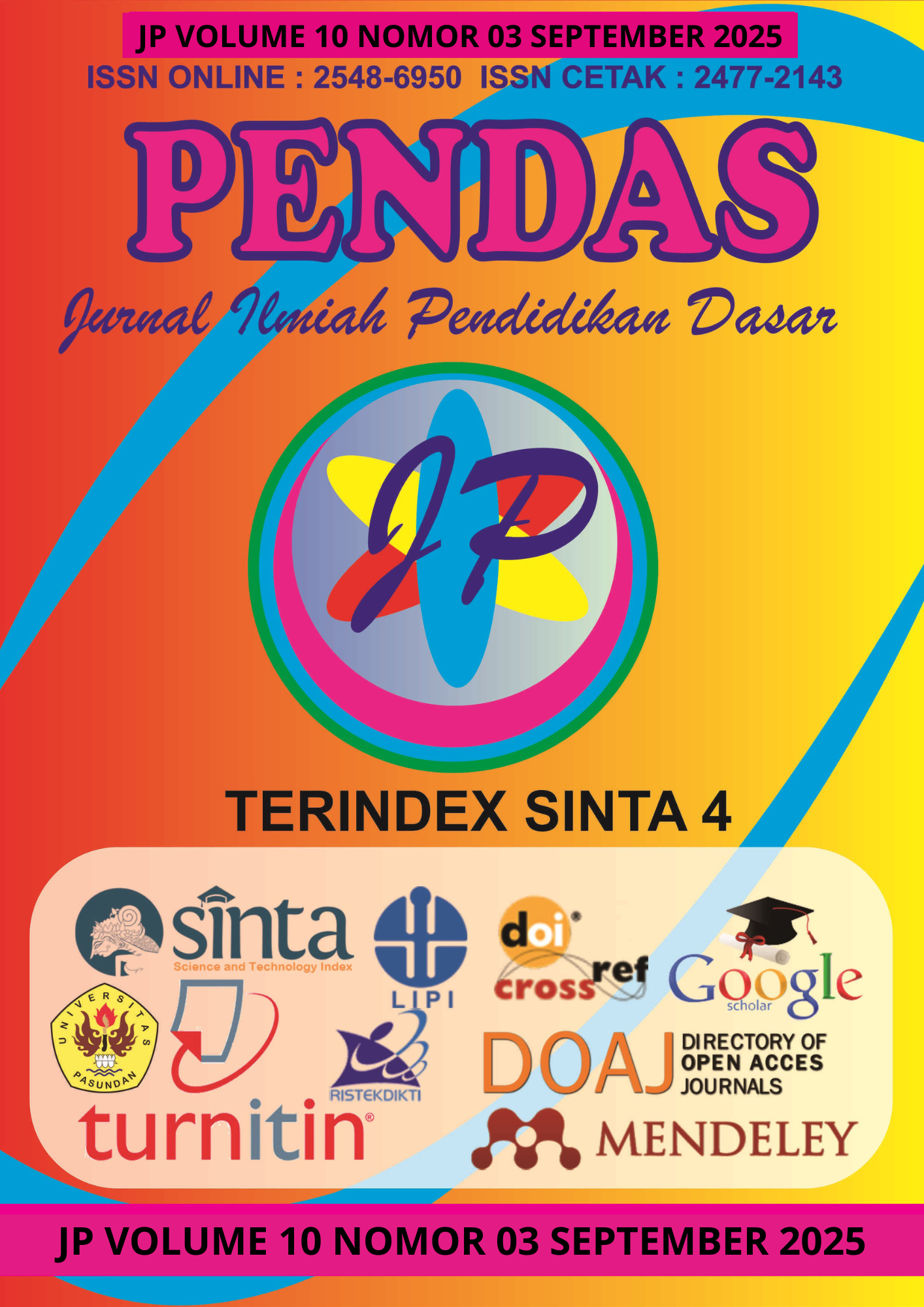PENGARUH PERMAINAN BINGO MODIFIKASI VISUAL DALAM MENINGKATKAN KEMAMPUAN BERHITUNG ANAK DITAMAN KANAK-KANAK IQRA
DOI:
https://doi.org/10.23969/jp.v10i03.32203Keywords:
Bingo game, Counting Skills, Early ChildhoodAbstract
This study is motivated by the problem that children's counting skills are not well developed. some children have been able to mention the numbers 1-20 but when asked to match with the number symbol the child has not been able to show correctly, besides that there is still a lack of availability of varied learning media, and a lack of teacher creativity in creating media to improve counting skills in children. Thus, bingo games are employed as a means to enhance children's counting skills, allowing them to grasp counting ideas through engaging and enjoyable activities. The purpose of this research is to find out if playing bingo games improves the counting skills of kindergarteners at Iqra. This study employed a quantitative strategy based on a quasi-experimental design. Using a purposive sampling strategy, a total of ten students from two different classes class B2 (the experimental group) and class B1 (the control group) made up the population of this study. Statement sheets were utilized as data collecting tools, and methods for data analysis included tests for normality, homogeneity, and hypothesis testing, as well as oral and action tests. After that, SPSS 30.0 was used to conduct the difference test (t-tests). After the test, the average value in the experimental group rose from 13.00 to 18.90, according to the data.
Downloads
References
Agustika, K. N. (2021). Pengaruh Alat Permainan Edukatif Maze Angka Terhadap Kemampuan Berhitung Anak Kelompok TK B di TK Dharma Wanita Kadung Wilut (Skripsi). Universitas Islam Negeri Maulana Malik Ibrahim Malang.
Alea, N., & Amidi, A. (2024). Penggunaan Permainan Bingo dalam Pembelajaran Anak Usia Dini. CV. Bina Ilmu.
Arikunto, S. (2019). Prosedur Penelitian: Suatu Pendekatan Praktik. Rineka Cipta.
Baratta-Lorton, M. (1976). Mathematics their way: An activity-centered mathematics program for early childhood education. Addison-Wesley.
Beaty, J.J. (2013). Observasi Perkembangan Anak Usia Dini. Jakarta: Kencana
Charlesworth, R., & Lind, K. K. (2010). Mathematics and Science for Young Children. Cengage Learning.
Copley, J. V. (2000). The young child and mathematics. National Association for the Education of Young Children (NAEYC).
D’Entremont, Y. (2015). Mathematics and the human experience: Seeing the world through mathematical eyes. Academic Press.
Depdiknas. (2003). Undang-Undang Republik Indonesia Nomor 20 Tahun 2003 tentang Sistem Pendidikan Nasional. Departemen Pendidikan Nasional.
Jalmur. (2016). Penggunaan media dalam pembelajaran PAUD. Ombak.
Khan, A. (2016). Learning Mathematics throung Play. Internasional Journal of Early Childhood Education, 10(2), 34-50. 90 Martiana, L.D. (2014). Upaya meningkatkan kemampuan berhitung melalui metode bermain dengan media ular tangga pada anak. Jurnal ilmiah PG_PAUD IKIP Veteran Semarang, 2 (2),hlm. 36-47
Kennedy, L. M., & Johnson, A. (2007). Guiding children ’ s learning of mathematics, eleventh edition.
Khadijah. (2016). Pendidikan Anak Usia Dini. Kencana.
Mulyasa, E. (2012). Manajemen PAUD. Jakarta: PT Remaja Rosdakarya.
Nursamsinah, et al. (2023). Permainan Bingo dalam Pendidikan Anak. Jurnal Pendidikan Anak Usia Dini.
Oktariyani. (2017). Pendidikan Matematika Anak Usia Dini. Deepublish.
Petronella, A. T., Nadiroh, & Yuliani, R. (2020). Permainan Bingo untuk Menstimulasi Kemampuan Kognitif Anak Usia Dini. Jurnal Obsesi: Jurnal Pendidikan Anak Usia Dini, 4(2), 752–761. https://doi.org/https://doi.org/10.31004/obsesi.v4i2.445
Piaget, J. (dalam Maerina, 2014). Tahapan Perkembangan Kognitif Anak. Jakarta: Erlangga.
Pratiwi Ema. 2015. Calistung Bagi Anak Usia Dini Antara Manfaat
Downloads
Published
Issue
Section
License
Copyright (c) 2025 Pendas : Jurnal Ilmiah Pendidikan Dasar

This work is licensed under a Creative Commons Attribution 4.0 International License.














































